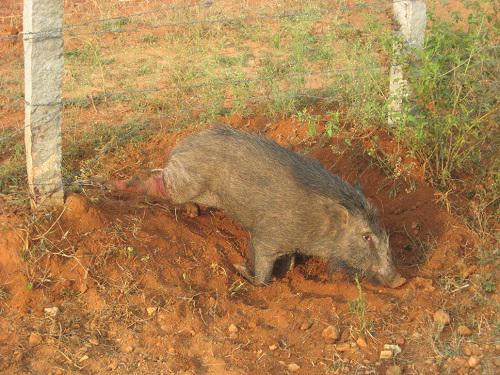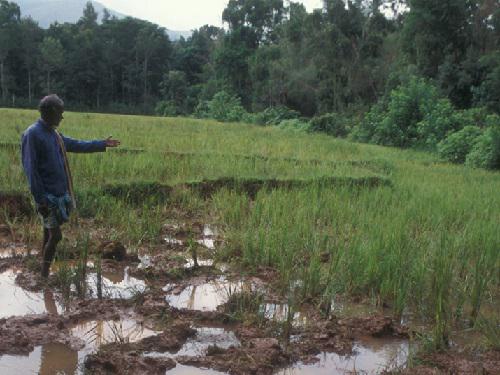Article featuring the project.
Krithi K. Karanth
Other projects
19 Mar 2015
Wild Seve: Transforming Human-Wildlife Conflicts in India Using Mobile Technology and Crisis Mapping
1 Nov 2019
Public Safety Training and Awareness for Villages Facing High Human-Wildlife Conflict in Karnataka, India
The proposed project aims to assess human-wildlife conflicts around parks of the Western Ghats, map risks and consequences for local people, and implications for conservation for conflict prone mammal species.

Crop damage and livestock predation are the most common human-wildlife conflicts that occur around protected areas globally. These incidents can result in economic losses, injuries and occasionally even death of animals and people. Managing and minimizing these conflicts requires better knowledge about which species are involved, intensity of and types of losses incurred from conflicts and assessment of risk.

In India high densities of people, close proximity and sharing of habitats between wildlife and people along with rapid ongoing land use change around many parks pose immediate challenges. The proposed project aims to assess human-wildlife conflicts around parks of the Western Ghats, map risks and consequences for local people, and implications for conservation of conflict prone mammal species. Key goals are to understand what conditions (land use patterns, human practices) are associated with higher rates of conflict and what remedial measures might be implemented to sustain wildlife and minimize conflict in India.
A key aspect of the project is identification of risk areas and households and sharing of results with the forest department particularly park managers, local NGOs and other stakeholders. Training field assistants and volunteers is an additional important outcome. The work plan includes data collection on human-wildlife conflict incidents in and around parks in the Western Ghats, characterization of landscape and census data and pre-testing of survey in the first phase, implementation of field work and conducting surveys with households in the second phase and analysis, write up and dissemination of results in the third phase. Volunteers from the Centre for Wildlife Studies network will participate in field data collection for land cover observations and surveys.